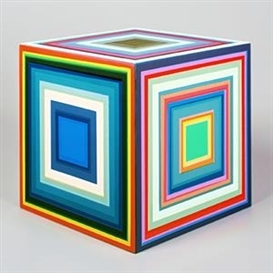PRESS & PUBLICATIONS
10 Opening Exhibitions to Watch
Read More
Born 1974 in Split, Croatia; lives and works in Paris.
The body of Poljak's work is composed of videos, video/sound installations, films, light objects, photographs and drawings. Her practice explores the politic upheaval and violence that the Balkan region has undergone since the early 1990s, and the ramifications of those changes in the lives of émigrés throughout Western Europe. Her videos and installations often combine staged and even fantastical situations with documentation of real-life misunderstandings and misuses of power. While her filmic explorations meld autobiographical elements and experiences that she has dealt with as a woman living in former Yugoslavia and later in France and scenarios reflecting the social and political consequences of Croatia's move from socialism to free market capitalism. Subjects she takes particular interest in range from the memorialization of the Holocaust to the trauma of post-civil war Serbo-Croatian relations, to investigate how transitional political and economic moments can re-ignite brutal social customs with deleterious effects for women and ethnic religious minorities.
Renata Poljak/ Eva Diaz
The ancient Greek word for an actor means literally one who
interprets. In her latest project Staging Actors / Staging Beliefs
Renata Poljak questions what happens when actors stop interpreting
the world that we accept as true and how it affects our sense of
being, belonging and truth.
As in many of Poljak's previous works, personal memory and form of (auto)biography act as the starting points to create a complex examination; this time, on the iconic power of cinematic images in representing and circulating ideologies and political agendas, and shaping cultural memory.
The video revolves around the persona of Ivan Kujundzic, who as
a child took the main role in a popular Yugoslav feature film Bosko
Buha. Made in 1979, the film elaborated life, combat actions,
bravery and heroic death in an ambush of this youngest of
Partisans.Through the film's continuous screenings the communist
ideology and belief in Yugoslav socialist system were extensively
spread. Boshko Buha was one of the most popular films of the
Yugoslav era. the 1990’s Ivan Kujundzic got actively involved in
the Croatian War of Independence which marked the end of Yugoslav
Federation and its political agenda—the very ones Bosko Buha was
fighting for. Today Ivan Kujundžić is 48 years old.
One interview, two realities ...
In an era when everyone has a reality show, which is actually not real, when the news and mainstream media is increasingly being one sided Renata Poljak uses a filmic narrative to tell us there are two sides to all realities. A hero from World War II Yugoslavia becomes a metaphor for a belief system that has been in place for half a century, then disintegrated and quickly replaced by new ideologies. Poljak is concerned with one of the most simple yet profound questions - what do we believe in today. In an era when trends change over night and the choice of allegiances are abundant, which reality do we believe in?.
Renata Poljak works with Galerie Ernst Hilger, Vienna.
For additional information about this artist, visit Mutual Art






